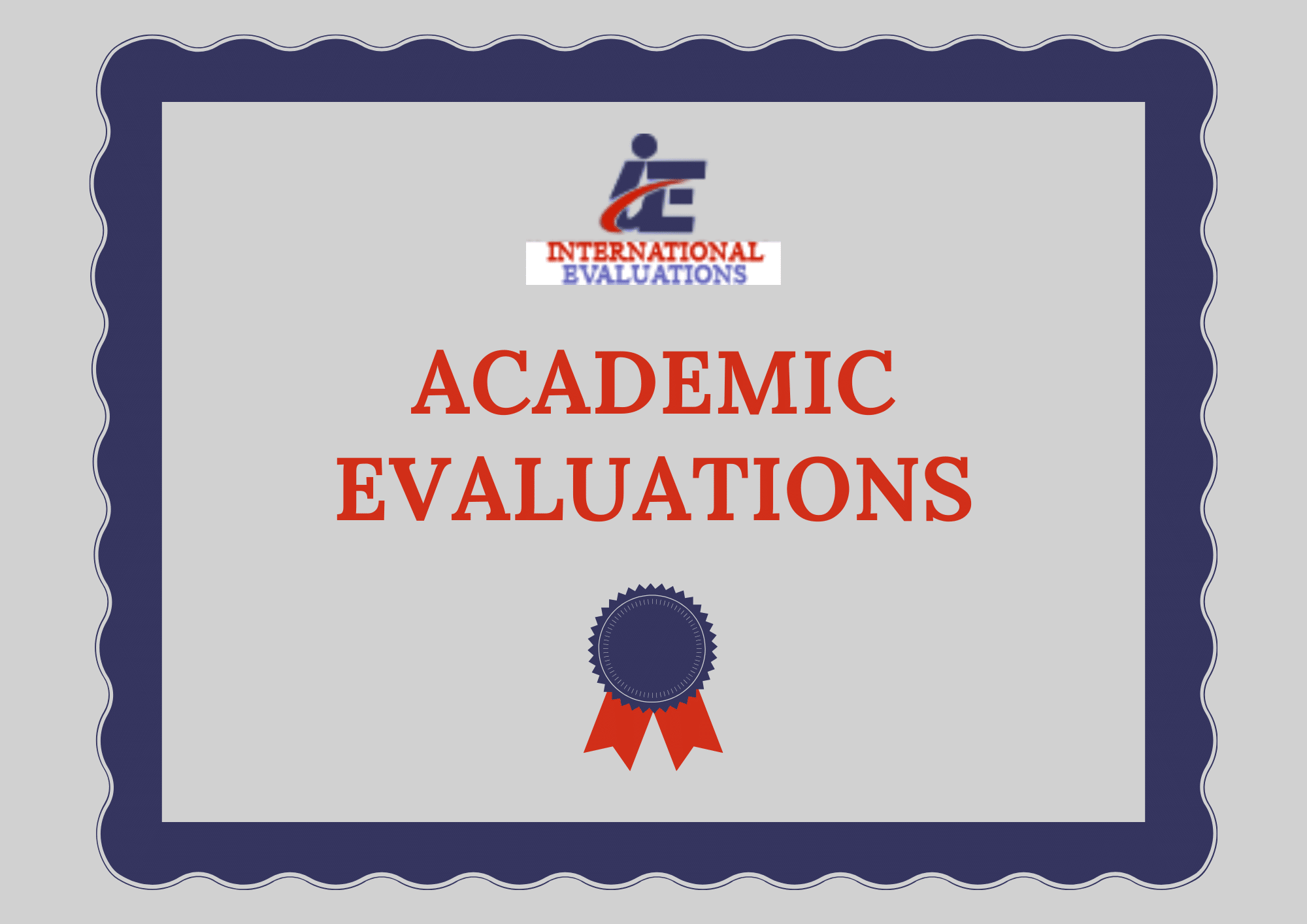Introduction
In a significantly globalized world, the value of global credential examination can not be overemphasized. As more people look for academic and professional opportunities beyond their home countries, understanding how their certifications are perceived abroad is important. One significant element of this evaluation procedure is the professional letter. This article explores "Professional Letters Explained: How They Impact International Credential Evaluation," delving into their significance, application, and the overarching effect they have on academic and expert pursuits.

What Are Professional Letters?

Expert letters, sometimes described as professional opinion letters, are files written by certified professionals who supply an assessment of a person's academic qualifications or work experience. These letters work as a bridge between various academic systems, using insights that may not be easily understood through requirement records or diplomas alone.
The Function of Professional Letters in Academic Credential Evaluation
Understanding Academic Credential Evaluation
Academic credential examination is a methodical procedure that figures out the equivalency of foreign instructional credentials to those in another nation. This procedure plays a vital role for trainees who wish to study abroad or specialists looking for work in a new country.
Why Are Specialist Letters Necessary?
When evaluating foreign qualifications, there can be significant distinctions in grading systems, curricula, and academic standards. An expert letter helps evaluators understand these subtleties by offering context that might not appear from official documents. For instance:
- Cultural Context: A specialist might explain how instructional practices vary across cultures. Institutional Reputation: They can provide insight into the standing of particular organizations within their local context.
Types of Credentials Evaluated
Different types of credentials need numerous kinds of examination:
- Diplomas Degrees Academic Transcripts Professional Licenses
Each type necessitates mindful consideration and frequently take advantage of the addition of an expert letter.
International Credential Evaluation Services
Overview of International Services
International credential assessment services (ICES) concentrate on evaluating foreign academic credentials for different functions, such as work, further studies, or immigration. They rely heavily on paperwork offered by applicants but increasingly recognize the value of expert opinions.
How Specialist Letters Boost These Services
By integrating expert letters into their evaluations, ICES can offer more thorough assessments that reflect not simply raw data but also qualitative insights. This can substantially enhance the reliability and dependability of evaluations.
Selecting an Evaluation Service Provider
Choosing the ideal global credential examination service is vital. Elements to think about include:
Accreditation Recognition by employers and universities Experience with specific countries or scholastic systemsConsulting with experts who have experience within your field can help direct you toward picking a reliable service.
Course-by-Course Credential Evaluation
What Is Course-by-Course Evaluation?
A course-by-course credential examination breaks down each subject taken during an individual's academic period into in-depth analyses. This method offers a granular view that is specifically advantageous for candidates pursuing additional education in competitive programs.
The Need for Professional Opinion in Course Evaluations
An expert viewpoint letter adds depth to this sort of evaluation by clarifying complicated topics or distinct courses that might not fit nicely into traditional equivalencies recognized by institutions abroad.
Benefits Include:
- Enhanced clarity on specialized topics Justification for credit transfers Improved opportunities for admission into wanted programs
Work Experience Evaluation Using Expert Letters
Importance of Work Experience Evaluations
For numerous professionals moving globally, work experience is as crucial as scholastic accomplishments. An objective assessment helps potential employers evaluate appropriate abilities and knowledge gotten through past roles.

Expert Opinion Letters for Work Experience Assessment
Experts can prepare letters detailing job obligations and abilities gotten throughout previous work-- valuable information when using to positions overseas.
Key Aspects Frequently Consisted of:
Job Title and Responsibilities Duration of Employment Skills Developed Pertinent to the New PositionBusiness Plan Assessment with Professional Letters
Understanding Service Strategy Evaluations
When requesting company authorizations or loans abroad, having a robust business plan is important. An expert letter can verify presumptions made within an organization strategy based on market requirements or market analysis from https://privatebin.net/?440e376de77d7105#7jjKh2VfLwKgk4E3pPpMwvFEvdCmrcnXXKuPQZpryM27 specialists familiar with regional conditions.
How Professionals Contribute to Business Plans
Experts provide reliability by providing:
- Market Research study Insights Feasibility Studies Financial Projections Validation
This reinforced documents can lead the way for effective applications.
Expert Letters Described: Their Format and Structure
How to Structure a Reliable Expert Letter?
A reliable expert letter need to follow a clear structure to ensure it communicates all necessary information succinctly:
Introduction: Briefly state who you are and your qualifications. Purpose: Explain why you're composing the letter. Assessment: Supply your comprehensive analysis. Conclusion: Wrap-up bottom lines and offer any extra insights.Sample Structure Breakdown
|Area|Description|| ---------|-------------|| Introduction|Who you are; your competence|| Function|Reason for writing; context|| Assessment|In-depth analysis; observations|| Conclusion|Summary; prospective implications|
Key Factors to consider When Drafting a Professional Letter
Clarity Is Paramount
Use uncomplicated language without jargon unless needed; keep in mind that your audience might not share your level of expertise.
Ensure Reliability Through Qualifications
Include relevant qualifications or expert memberships that lend authority to your opinion.
Common Mistakes to Prevent When Offering Specialist Opinions
Lack of specificity-- be accurate about qualifications. Overgeneralization-- avoid sweeping declarations about entire fields. Failing to cite sources-- always support claims with reputable referrals where applicable.Legal Implications Associated with Professional Letters
Understanding Liability Issues
As with any expert documentation, there is potential liability involved when providing a professional opinion letter; therefore:
- Be truthful about knowledge limits. State presumptions plainly within the letter.
Factors Influencing Approval of Expert Letters Throughout Borders
Cultural Subtleties Impacting Approval Rates
Different cultures worth various aspects when assessing credentials-- understanding these subtleties will reinforce how you craft your letters accordingly.
Best Practices for Acquiring Quality Professional Letters
Choose professionals who comprehend both educational systems involved. Provide clear standards on what information you require them to cover. Allow ample time before due dates develop so they can supply thoughtful reactions instead of hurried ones.Expert Letters Discussed: Typical FAQs About Their Usage in Evaluations
1. What Is A Professional Viewpoint Letter?
A specialist opinion letter examines non-standardized qualifications such as varied coursework or distinct professional experiences connected to specific industries/careers.
2. Why Are They Important?
They offer context around foreign credentials unknown within local education/employment markets-- a critical tool in international settings!
3. How Do I Acquire One?
Reach out directly via email/phone call explaining needs clearly while providing details/documentation supporting requests-- that way professionals understand exactly what's required upfront!
4. Exist Costs Related To Obtaining These Letters?
Yes! A lot of specialists charge fees dependent upon complexity/time required-- but always inquire ahead of time so there are not a surprises later on down line!
5. Can Anybody Compose An Effective Professional Viewpoint Letter?
Not everybody qualifies! Just those having appropriate proficiency must attempt preparing such documents-- authenticity rests heavily upon author credentials!
6. The length of time Does It Require To Receive A Letter When Requested?
Timeframes vary extensively based upon availability/commitment levels amongst respective writers-- however enabling 2 weeks minimum normally guarantees prompt receipt!
Conclusion
In summary, understanding "Professional Letters Explained: How They Effect International Credential Assessment" illuminates their essential role in bridging spaces between various academic systems and work experiences globally. Such letters improve evaluations conducted by global credential evaluation services while improving prospects for individuals looking for chances abroad-- from academia through work pathways all accomplished through well-crafted documents backed by solid proficiency! By leveraging these resources effectively-- and understanding finest practices-- you make the most of opportunities at success during transition durations-- from school admissions processes through career improvement endeavors alike!